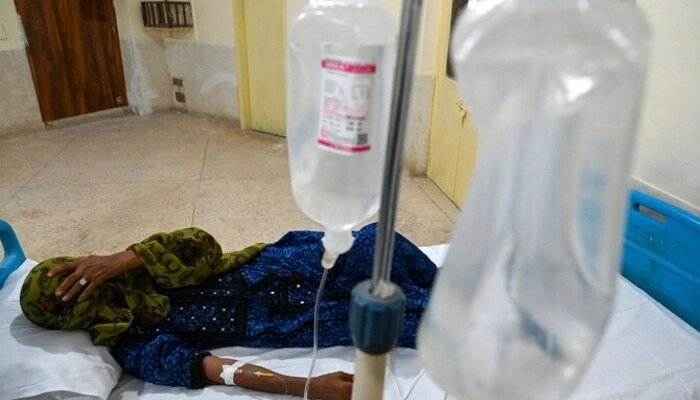
Khyber Pakhtunkhwa experienced a troubling surge in infectious diseases in 2024, with diphtheria, dengue, measles, and malaria witnessing alarming increases. The sharp rise highlights the urgent need for improved healthcare infrastructure and climate-resilient disease control strategies to combat this escalating health crisis.
Alarming Rise in Diphtheria
Diphtheria cases soared by 182%, marking the highest percentage increase among all diseases. The province reported 952 cases in 2024 compared to 337 in 2023. Health authorities have raised concerns over inadequate immunization coverage, emphasizing the need for targeted vaccination campaigns and community education to curb the spread of this life-threatening disease.
Dengue Fever Cases Nearly Triple
Dengue fever also recorded a shocking 176% rise in cases. The number of infections jumped from 1,980 in 2023 to 5,477 in 2024. Experts attributed this surge to changing climatic conditions, which created ideal breeding grounds for mosquitoes. Prolonged monsoon seasons and rising temperatures have intensified the transmission cycle, making it harder to control outbreaks.
Measles and Malaria Also on the Rise
Measles cases increased by 43%, rising from 10,000 in 2023 to 15,621 in 2024. Similarly, malaria saw a 13% growth, with reported cases climbing from 239,902 to 271,344. These increases reflect gaps in immunization efforts and the persistence of disease vectors in vulnerable areas.
Decline in Typhoid and Pneumonia
Amid rising infections, typhoid and pneumonia showed a positive trend with declining numbers. Typhoid cases dropped by 32%, while pneumonia saw a 21% decrease. These reductions indicate progress in managing some diseases, providing a glimmer of hope for health officials.
Factors Driving the Surge
Health Adviser Ehtesham Ali highlighted climate change as a key factor driving the increase in vector-borne diseases like dengue and malaria. Warmer temperatures and altered weather patterns have expanded the range and lifecycle of mosquitoes, leading to heightened disease transmission.
Additionally, vaccine shortages earlier in the year hindered immunization programs, contributing to the spike in preventable diseases like diphtheria and measles. However, authorities managed to restore the vaccine supply chain by mid-2024, which partially mitigated the crisis.
Read: Gaza Healthcare Faces Collapse Amid Ongoing Conflict
The Path Forward
The dramatic rise in infectious diseases underscores the importance of robust disease surveillance and proactive measures. Authorities must prioritize immunization drives, improve healthcare access, and address the effects of climate change on disease patterns. Public awareness campaigns are also crucial to encourage early reporting of symptoms and ensure timely treatment.
As Khyber Pakhtunkhwa faces these challenges, a coordinated effort between health officials, policymakers, and communities is essential to curb the spread of infections and protect vulnerable populations. The focus must remain on building a resilient healthcare system to tackle future health crises effectively.
Follow Day News on Google News, Instagram, YouTube, Facebook, Whats App, and TikTok for latest updates











